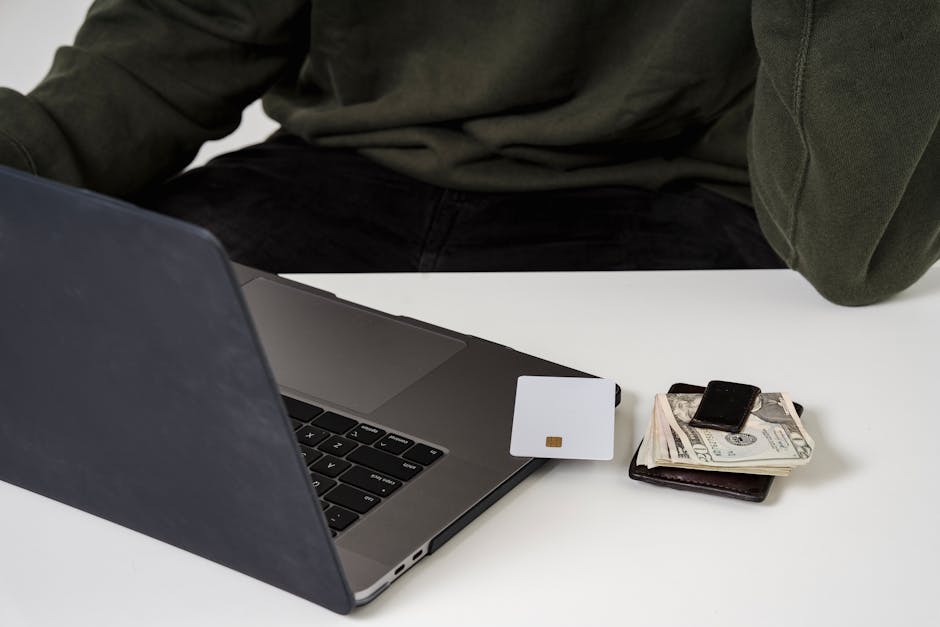It’s that time again—your debit card is about to expire. Don’t worry, it’s more common than you think, and there’s plenty you can do to stay ahead.
From getting your new card to ensuring uninterrupted access to your money, a little preparation goes a long way. Let’s dive into what you need to know.
Understanding the ins and outs of debit card expiration is more than just swapping plastic; it’s about managing your finances smoothly. After all, no one wants surprises when they’re trying to pay for groceries or bills.
We’ll cover everything from how to handle the arrival of your new card to security tips that keep your account safe. Consider this your friendly guide to mastering the debit card expiry dance.
By the end, you’ll feel confident and ready to tackle that expiration date head-on. Let’s get started!
Here’s everything you need to know to avoid hiccups and keep your spending seamless.
Preparing for Your New Card
Receiving a new debit card before the old one expires is a standard banking practice, but it’s important to know what to expect. Timing can vary based on your bank, so being proactive helps avoid any interruptions.
Preparation means more than just waiting for the mail. It involves activating your new card on time and understanding what happens to your old card after expiration. This section breaks down the essentials of getting ready for the switch.
Let’s explore key tips to make the transition smooth and hassle-free.
1. Track the arrival date – Your bank usually sends the new card a few weeks before the old one expires. Mark your calendar and watch for it so you’re not caught off guard when the old card stops working.
2. Activate promptly – As soon as you get your new card, activate it following your bank’s instructions. This step is crucial to avoid any downtime in accessing your funds.
3. Destroy the old card safely – Once the new card is active, cut up or shred the expired card. This prevents it from being accidentally used or falling into the wrong hands.
4. Update your PIN if necessary – Some banks issue cards with the same PIN; others require a reset. Confirm your PIN details and change it if you prefer extra security.
5. Check for updated features – New cards might include enhanced security chips or contactless payment options. Take note of these and learn how to use them effectively.
Knowing how to prepare sets a solid foundation. Next, we’ll look into how to manage your recurring payments tied to your debit card.
Managing Recurring Payments and Subscriptions
Many of us don’t realize how many subscriptions are linked to our debit cards. When your card expires, these payments can fail, causing service interruptions or late fees.
It’s essential to review and update your payment information ahead of time. This section focuses on keeping your subscriptions running smoothly through the card transition.
Here’s how to stay on top of recurring charges to avoid any surprises.
6. Make a list of all subscriptions – Identify every service that bills your debit card, from streaming platforms to gym memberships. This overview helps you avoid missing any updates.
7. Update payment info early – As soon as your new card is active, log into each subscription account and replace the old card details with the new one to prevent failed payments.
8. Monitor bank statements closely – Check your statements for any declined transactions or duplicate charges during the card switch period, so you can address issues promptly.
9. Set reminders for payment reviews – Schedule regular intervals to review your recurring payments, which helps you spot unnecessary subscriptions and keep your finances lean.
10. Contact service providers if needed – If you experience trouble updating your card info online, a quick call to customer service can solve the problem faster than you think.
Managing recurring payments ensures you won’t miss a beat. Next, we’ll cover security measures to keep your debit card safe during and after expiration.
Protecting Your Account and Personal Information
When a debit card expires, it can be a prime opportunity for fraudsters if you’re not careful. Protecting your account and personal info is vital during this time.
This section highlights smart security practices to keep your finances safe, especially around the transition period.
Let’s explore essential precautions to minimize risk and maintain peace of mind.
11. Beware of phishing scams – Fraudsters often send fake emails about card expiration to steal your details. Always verify communications directly through your bank’s official channels.
12. Securely dispose of your old card – Don’t just throw your expired card in the trash. Shred or cut it into small pieces to prevent anyone from retrieving your account information.
13. Regularly monitor your account – Keep an eye on your transactions, especially right after the card switch, to spot any unauthorized charges quickly.
14. Enable account alerts – Many banks offer real-time alerts for transactions. Activating these notifications can help you catch suspicious activity fast.
15. Use strong PINs and passwords – Update your PIN and online banking passwords around the time your card expires to add an extra layer of security.
With security locked down, the next step is understanding how to handle your debit card at ATMs and in stores during the transition.
Using Your Debit Card During the Transition Period
The days around your card’s expiration can be tricky when it comes to transactions. Knowing how to navigate ATM withdrawals, point-of-sale purchases, and online payments is key.
This section lays out practical advice for using your debit card confidently during this period.
Here are tips to avoid common pitfalls and keep your spending uninterrupted.
16. Know your card’s exact expiration date – Transactions made after this date may be declined. Plan accordingly to avoid embarrassment or inconvenience at checkout.
17. Use your old card until the expiration date – There’s no need to switch too early. Your current card remains valid until it expires, so keep using it to avoid confusion.
18. Prepare cash as a backup – Having some cash on hand during the switch prevents you from being stranded if your card is declined unexpectedly.
19. Inform merchants of expiring card issues – If a payment is declined, explaining that your card expired can save time and frustration, especially for recurring billing setups.
20. Test your new card with small purchases first – Before relying on your new card for big transactions, try a low-cost purchase to confirm it’s active and working properly.
Now that you know how to use your card during the switch, let’s explore how to keep your financial records organized through the process.
Organizing Your Finances Around Card Expiration
Managing your finances doesn’t stop when your debit card changes. Keeping your records tidy helps you track spending, avoid overdrafts, and plan ahead.
This section covers organizational tips that make your banking life simpler and more stress-free during card expiration.
Let’s dive into practical steps for maintaining clarity and control.
21. Update your budgeting tools – If you use apps or spreadsheets, enter your new card details and expiration date to keep your financial tracking accurate.
22. Review recent transactions – Before the old card expires, check your bank statements to ensure all charges are correct and dispute any unusual activity.
23. Set future reminders – Mark your calendar for the next card expiration well in advance to avoid last-minute scrambles next time.
24. Maintain an emergency fund – Having cash reserves can help bridge any gaps if your card experiences a hold or delay in activation during the switch.
25. Keep your bank’s contact info handy – Save phone numbers and customer service emails so you can quickly resolve any issues related to your card expiration.
Being organized reduces stress and keeps your money moving smoothly. You’re now equipped to handle your debit card expiration like a pro.
Remember, a little preparation and awareness can save you from common pitfalls and keep your financial life running smoothly.
Keep these tips close at hand, and you’ll breeze through your next debit card expiration without missing a beat.
If you found this helpful, share it with friends or leave a comment about your own experiences—we’d love to hear from you!



